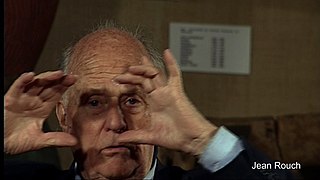A Quote by Crispin Glover
Realism is always subjective in film. There's no such thing as cinema verite.
Related Quotes
I look at the human sciences as poetic sciences in which there is no objectivity, and I see film as not being objective, and cinema verite as a cinema of lies that depends on the art of telling yourself lies. If you’re a good storyteller then the lie is more true than reality, and if you’re a bad one, the truth is worse than a half lie.
Sci-fi and horror, particularly, allow a storyteller to depart from, let's say, the demands of cinema verite or kitchen-sink realism or, even, just relatable dramas and can go into areas that are either - in the case of horror - more primally effective or, in the case of sci-fi, more speculative or imaginative.
Narrative, fiction filmmaking is the culmination of several art forms: theater, art history, architecture. Whereas doc filmmaking is more pure cinema, like cinema verité is film in its purest form. You're taking random images and creating meaning out of random images, telling a story, getting meaning, capturing something that's real, that's really happening, and render this celluloid sculpture of this real thing. That's what really separates the power of doc filmmaking from fiction.
It seems to me that dominant cinema seems to require an empathy or a sympathy between the film and the audience which is basically to do with the manipulation of the emotions and it seems to me again -- and this is a very subjective position -- that most cinema seems to trivialise the emotions, sentimentalising or romanticising them.
Films are subjective - what you like, what you don't like. But the thing for me that is absolutely unifying is the idea that every time I go to the cinema and pay my money and sit down and watch a film go up on-screen, I want to feel that the people who made that film think it's the best movie in the world, that they poured everything into it and they really love it. Whether or not I agree with what they've done, I want that effort there - I want that sincerity. And when you don't feel it, that's the only time I feel like I'm wasting my time at the movies.
































